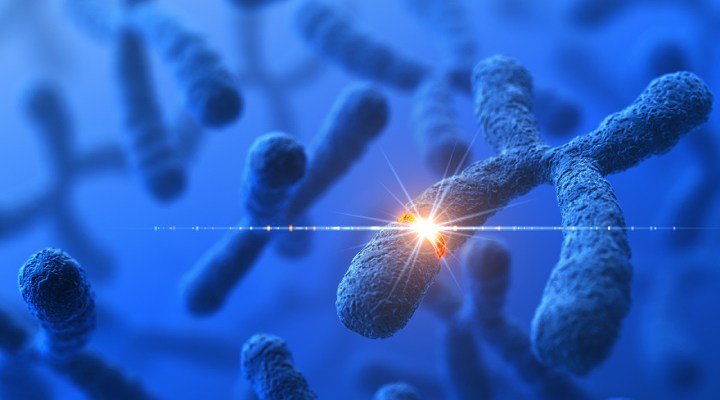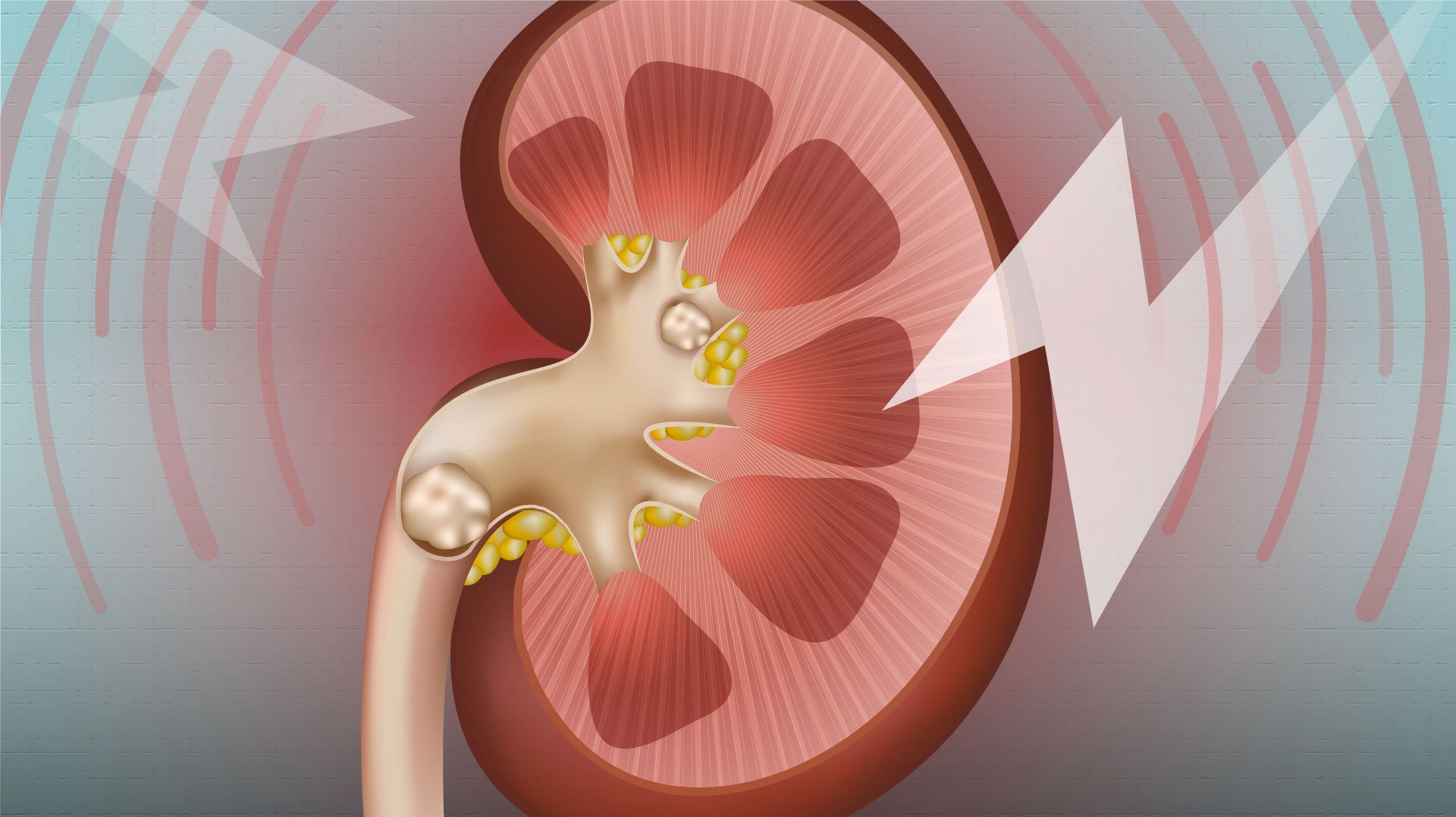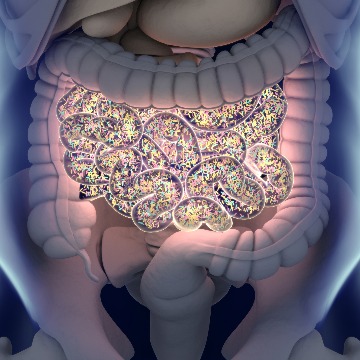21 Warning Signs and Causes of Abdominal Pain
Any pain is a sign of a problem in the body and needs attention so that timely examination can prevent serious diseases. Heartburn is a pain that comes in many forms, and this is where we have to ask ourselves, is the gastrointestinal tract a permanent source of pain? What is the cause of our heartache, and what disease or problem does it indicate?
Causes of heartburn, what factors cause our heartburn?
You need biotic fiber materials.
If you have stomach upsets such as bloating, constipation, diarrhea, or even acid reflux, probiotics can help. Daily intake of probiotics supports and rejuvenates symbiotic microorganisms by helping to balance intestinal microorganisms, aid digestion, help the body make vitamins and absorb minerals, strengthening the immune system, and improving metabolism. Coexisting microorganisms are a collection of beneficial bacteria that affect the health of the gastrointestinal tract and can be caused by eating yogurt or sour foods such as oranges.
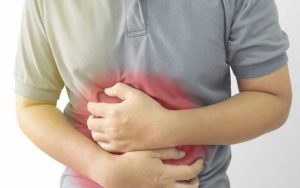
You are exposed to a lot of chemicals.
According to recent studies, abnormalities of abdominal microorganisms can be caused by environmental pollutants. Bowel or abdominal pain is abnormal and is often a sign of damage to microorganisms. Processed foods, chemicals in creams, lotions, detergents, and medicines can often cause side effects such as a decrease or change in the composition of intestinal microorganisms. Research into the exact effects of these agents on microorganisms is still ongoing, but eating a complete meal such as animal feed, meat, eggs, fish, and natural products, if possible, and eating probiotics can be helpful.
You have a weak immune system.
This is a beneficial part of the body’s immune system in the gut, and its cell walls produce beneficial antibodies. In addition, gut bacteria produce vitamin B, biotin, folate, and vitamin B12. In addition, the condition of the intestine absorbs nutrients, which in turn is beneficial for the health of the immune system. So if you are often sick, when your stomach is balanced with beneficial bacteria, it protects the body against disease and infection. Conversely, if the body is unbalanced, it can fight pathogenic microbes. Research shows that if the amount of microorganisms decreases, antioxidants are no longer produced, and the person is more exposed to the disease.
Your nervous system is on alert.
A study by Florida State University professor Linda Rainman examined the relationship between the gut and the brain. He explained how the brain and intestines communicate through the vagus nerve, which runs along the body from the brain to the bottom of the spine, so we become “anxious” when stressed. In times of emotional stress, the sympathetic nervous system Specific stops intestinal function. As a result, your body reduces blood flow from the intestines to your organs, and reduced blood flow to the intestines can lead to nausea and stress, which over time, stress can negatively affect the intestines.

Your sleep pattern should be corrected.
Lack of sleep can affect gut health. Ecosystems Microorganisms have a wide and varied intestine with their daily rhythm. Research shows that one way the gut works in sleep is to use the chemical serotonin, which affects the sleep/wake cycle. If you ask people, they say that serotonin is produced in the brain, but 80% of the serotonin produced in the body is by the gut.
Exercise
According to studies at Harvard Medical School, moving your body helps move your abdomen. In addition, exercise-induced changes in the autonomic nervous system (which controls the body’s functions) in the gastrointestinal tract also affect bowel motility and possibly the small intestine. Therefore, the benefits of exercise in improving constipation are visible, and in fact, one of the causes of constipation is lack of exercise.
You have an overactive gastric nerve.
According to a recent FSU study, unhealthy intestinal microorganisms caused by wild nerves can lead to mood and emotional disorders. The gastric nerves send movement signals from the brain to the intestines that affect digestion, and the intestines are sent to the brain and can change from “everything is fine” to “we had a problem.” For example, foods such as sugar, oilseeds, fried foods, processed flours, chemical additives, and artificial sweeteners can cause inflammation in the body and contain dangerous signals from the gastric nerve. These include worsening anxiety and depression.
You eat very close to sleep.
One of the most important causes of intestinal problems such as acid reflux, heartburn, and even (GERD) (return of stomach acid) is sleep, right after eating. “Eat dinner two to three hours before bed. If your diet is high in carbohydrates and fats, eat four to six hours before bed,” says the gastroenterologist (AGAF).
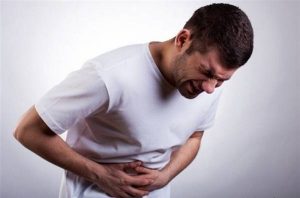
Something is stuck in your stomach.
If your abdomen is stiff and swollen, this could mean gas or constipation, and if this condition persists, it is a sign of intestinal obstruction. Research shows that such obstructions can lead to bloating, and the patient often develops abdominal cramps. Causes of intestinal obstruction can be due to hernia adhesions, inflammation of the intestinal wall diverticulum (IBD), inflammatory bowel syndrome, and even cancer.
You have internal bleeding.
Blood in the stool can be scary, but black stool can also be a sign of bleeding from the gastrointestinal tract or small intestine. Of course, if you have not eaten dark vegetables such as beets or iron supplements, black stools can indicate cancer. Bright red blood in the stool is caused by bleeding hemorrhoids after fatigue and stress or hard stools. This may be the first sign of a serious problem such as inflammation of the intestines, appendages, and sacs in the gastrointestinal tract and colon cancer.
It is colonoscopy time.
Colo capsules have received a lot of attention in recent years, but colonoscopy can save your life, especially if you have cancer symptoms such as blood or pus in the stool, weight loss, fever, or abnormal lumps have. In addition, a family history of colon cancer or inflammatory bowel disease (IBD) may indicate the need for a colonoscopy.
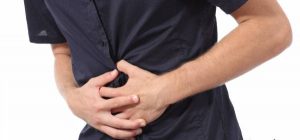
Need for dietary fiber
Constipation has different meanings for people depending on what they think, including changes in bowel habits, hard stools, defecation, and constipation. A poor diet can often cause this, so try to avoid fiber and to some extent. You may drink water. Suppose constipation lasts for more than three months, especially if it is accompanied by blood in the stool, weight loss, or loss of appetite. In that case, a doctor should check it because it can indicate serious diseases such as diabetes and Parkinson’s disease.
You may have chronic constipation.
Suppose you have persistent constipation for no apparent reason. In that case, you may have chronic idiopathic constipation (CIC), and if you are struggling with constipation, do not be embarrassed to talk to your doctor about it.
You may have liver problems.
It may be difficult to understand, but the liver is part of the digestive tract. Nutrients in food, toxins, and drugs are absorbed into the bloodstream of the gastrointestinal tract. The first place they stop is the liver, which is involved in metabolic processes and helps create energy or break down dangerous substances. Symptoms such as weight loss, loss of appetite, fatigue and bloating, and mood swings can be the first signs of liver disease, including hepatitis, cirrhosis, or cancer. As they grow in the liver, patients may experience right abdominal pain.
Your diet contains a lot of fatty foods.
In addition to the obvious side effects of fatty foods, these foods can lead to gallstones. Elevated blood cholesterol causes kidney stones in cholesterol, and eating less saturated fat can prevent it.
You may have a stomach ulcer.
If you have stomach pain after eating and often feel stomach acid, you should be tested for stomach ulcers. Most peptic ulcers have indigestion or pain in the upper abdomen with discomfort in the left, right, or back.
Although in some cases stomach ulcers have no symptoms, take them seriously if you have symptoms of stomach ulcers such as vomiting blood, black or red stools, sudden abdominal pain and bloating, and sometimes weight loss because this is just one of the thousands of reasons that cause heartache can not be ignored.
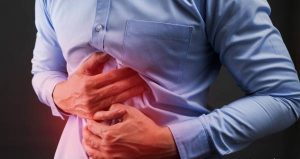
Stomach flu
Sudden, short-lived diarrhea may be a sign of food poisoning or “flu” in the stomach. However, when the stool is loose, it can signify a gastrointestinal infection, including viral infections such as norovirus, rotavirus, or adenovirus. Bacterial infections are often Salmonella, Campylobacter, Escherichia coli, Shigella, or Protozoa (parasites) such as Giardia. Bacterial and parasitic infections can be treated with medication, but you also need to get rid of viruses.
You are sensitive to something.
Some foods may harm you, but these foods are difficult to diagnose. If this happens, diagnose the cause, including celiac disease (gluten allergy) or an unsafe reaction to lactose (dairy allergy). See a doctor.
You have irritable bowel syndrome.
Loose stools can be a sign of irritable bowel syndrome, but you may be mistaken for constipation.
Inflammation of the intestine
Not to be confused with IBS, the disease can occur in different parts of the gastrointestinal tract. Symptoms of inflammatory bowel disease, such as blood or mucus in the stool, weight loss, fever, and bowel movements, are also noticeable. In addition, patients with IBD often have evidence of external inflammation, and they experience intestinal pain such as joint pain or itching.
When the intestine leaks
Unpleasant symptoms of the GI system, such as bloating, digestive problems, and pain, can be caused by irritable bowel syndrome (intestinal permeability). Irritable bowel syndrome is often the result of improved bowel surgery for colon problems, cancer, or other genetic diseases, and other causes can be genetics and poor diet.




